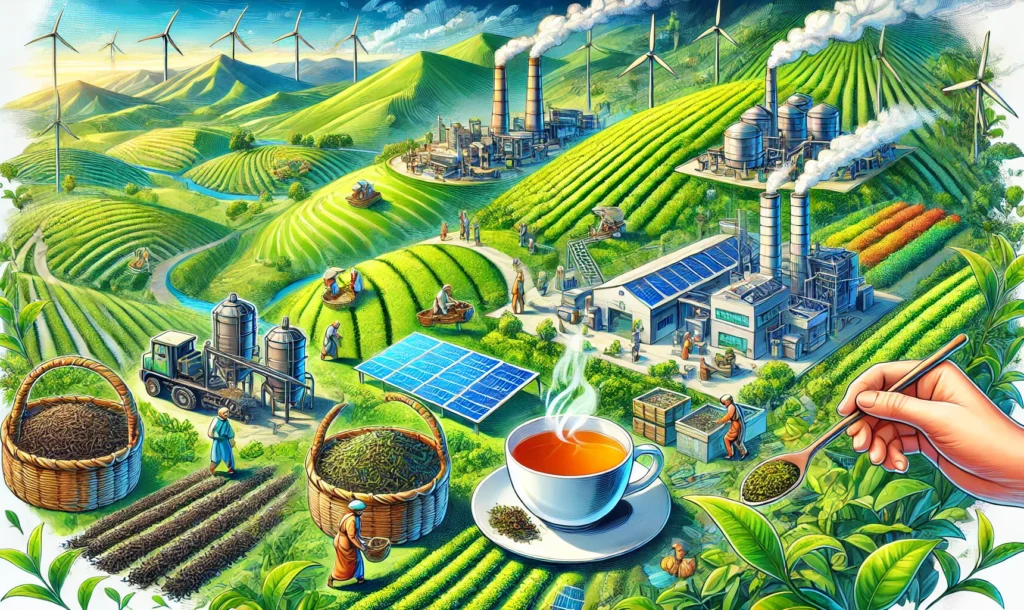India is the second-largest producer of tea in the world, after China. The tea sector plays a crucial role in the country’s economy, providing livelihoods to millions of people, particularly in rural areas. With its long history and cultural significance, tea production has thus become an integral part of India’s agricultural landscape.
Tea Production:
India’s diverse climate and soil conditions make it ideal for growing various types of tea. Black tea and Green tea are the two main types of tea that are produced, with black tea being the most widely consumed. The major tea-growing regions in India include Assam, Darjeeling, and Nilgiri.
- Assam: Known for its strong, robust black tea, Assam is the largest tea-producing region in India. Breakfast blends like English Breakfast Tea often use Assam Tea.
- Darjeeling: Often called as the “Champagne of Teas,” Darjeeling tea is grown in the hilly regions of West Bengal. It is famous for its delicate flavor and floral aroma, thus making it a favorite among tea connoisseurs.
- Nilgiri: It is Located in Tamil Nadu. It is known for its smooth and aromatic flavor. It’s used in various blends and is also popular for iced tea.
Economic Importance:
The tea industry plays a crucial role in India’s economy. India is the second-largest producer of tea globally, after China, and it also exports tea to many countries. The tea sector generates significant revenue for the country and also provides direct and indirect employment to over 1 million people, primarily in rural areas.
India is also the largest consumer of tea in the world, with millions of cups being consumed daily. The “Chai” culture is deeply embedded in Indian society. Tea stalls are a common sight in every street corner, offering a social and refreshing experience for people from all walks of life.
Example: Assam Tea
Assam is a prime example of India’s rich tea heritage. Assam is home to some of the largest tea estates in the world, producing millions of kilograms of tea each year. The state’s tea gardens, such as the Tocklai Tea Research Institute, are among the oldest and most renowned in the world.
One of the most well-known tea brands, Tata Tea, sources its products from Assam’s plantations. Over the years, Assam’s tea has earned a reputation for quality, and the region has developed a strong export market, thus making it a significant player in the global tea trade.
Challenges Faced:
Despite its significance, the tea sector faces several challenges. Climate change, with unpredictable weather patterns, has affected tea yields in some regions. Additionally, the industry faces issues related to labor rights, with many workers on tea estates experiencing poor working conditions and low wages.
Conclusion:
The tea sector in India is a vital part of the country’s economy and culture. With its rich history and global demand, tea continues to be a symbol of India’s agricultural strength and tradition. Regions like Assam are also setting an example of how the industry can thrive on the global stage. Despite the challenges, the sector’s growth prospects remain strong in the coming years.
– Ketaki Dandekar (Team Arthology)
Read more about Tea Sector here – https://www.lsifinance.com/tea-industry/
